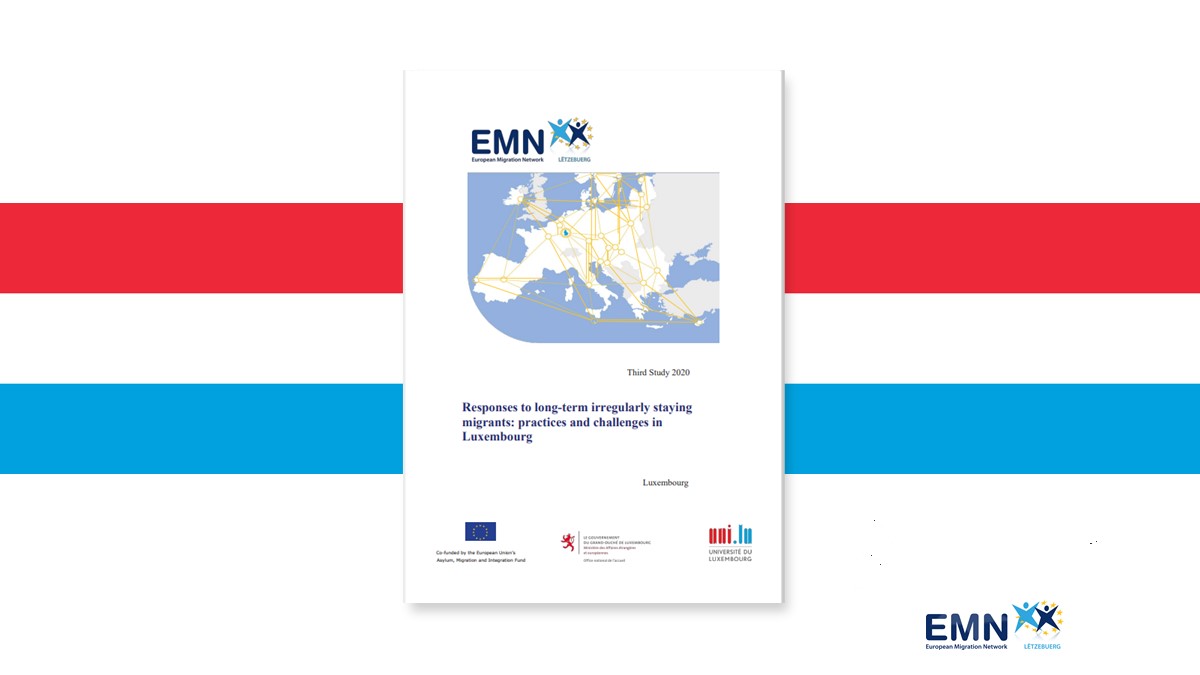The main objective of this study of the European Migration Network is to provide objective and reliable information on the approach to long-term irregular migrants in Luxembourg during 2015 and 2020.
The Luxembourgish Immigration Law does not differentiate between a short-term or long-term irregular migrant. In principle, irregular migrants do not have any rights and must return to their country of origin. However, the Immigration Law foresees exceptions for individuals who face obstacles when returning to their country of origin. These provisions are a legal remedy (residence permit for private reasons granted on humanitarian reasons of exceptional gravity) or administrative measures (postponement of removal for technical reasons and suspension of removal for medical reasons), which do not grant the person the right to residence but a right to stay. Finally, another group of irregular migrants that can benefit from limited rights are rejected applicants for international protection waiting to be returned.
Irregular migrants that are unknown to the authorities in Luxembourg usually entered the territory legally. Consequently, it is difficult to determine the scope of the issue in Luxembourg as reliable figures on this phenomenon are difficult to obtain. As there is no legal framework regulating long-term irregular migrants, the authorities do not deal with these individuals directly as most of the time they try to avoid detection. Moreover, the role of civil society or other entities regarding the access to public services for long-term irregularly staying migrants is limited to exceptional cases, such as the provision of services to victims of violence. Nevertheless, access to healthcare is possible for third-country nationals through voluntary health insurance and access to education is possible for irregular migrant children. The study provides a detailed overview of the challenges faced by this population.
The only solution for the long-term regular migrants is the regularisation procedure foreseen by article 89 of the Immigration Law but the legal framework and its interpretation are perceived as restrictive. However, a series of measures in order to avoid that regular migrants fall into irregularity during the pandemic were adopted by the Luxembourgish authorities, but most importantly access to certain services were open to irregular migrants (health care, social grocery shops, and access to emergency shelters) to help fight against the spread of the virus.
Lastly, the study also shows that the political debate on dealing with long-term irregular migrants mainly took place during the migration crisis of 2015 and in 2020 due to the Covid-19 pandemic crisis.

